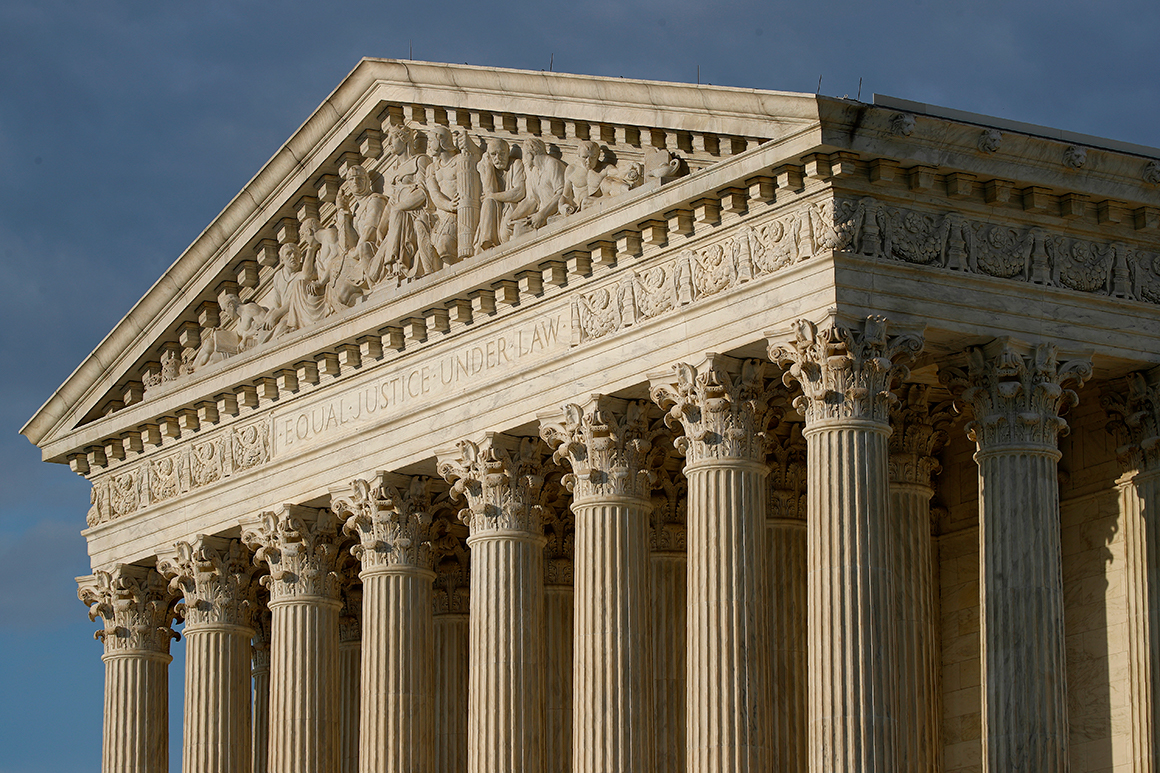
Roberts asked Solicitor General Noel Francisco, who defended Trump’s rollback, whether the administration was interpreting religious freedom laws „too broadly.“ Roberts and other justices, meanwhile, expressed frustration that the fight over birth control coverage hasn’t been resolved after nearly a decade of legal battles.
„The problem is that neither side wants the accommodation to work,“ said Roberts, referring to a current workaround for religious groups to avoid the coverage mandate.
Justice Ruth Bader Ginsburg, who dialed in from a hospital bed as she recovers from a gallbladder infection, said the administration’s expansive policy would impose higher costs on women if their employers quit providing free birth control coverage.
„The glaring feature of what the government has done in expanding this exemption is to toss to the winds entirely Congress’ instruction that women need and shall have seamless, no-cost comprehensive coverage,“ Ginsburg said.
Trump rolled back the birth control rules in 2017 with the support of religious allies. Lower courts blocked implementation of Trump’s rollback in challenges brought by a pair of Democratic-led states, New Jersey and Pennsylvania, prompting the administration to appeal to the Supreme Court.
Justice Stephen Breyer, a member of the court’s liberal wing, questioned whether the current case allowed the court to resolve the dispute over birth control coverage. He suggested the justices could kick the case back to lower courts. A ruling is expected this summer, as the presidential election ramps up.
The Supreme Court’s newest members, Gorsuch and Kavanaugh, questioned opponents of Trump’s policy why they believed it failed to strike an appropriate balance protecting guarding religious freedom and providing access to health care.
„If we get to the bottom line of, ‘Is this reasonable,’ why isn’t this a reasonable way to balance it?” Kavanaugh asked.
The fight over contraceptive coverage stems from the Obama administration’s interpretation of the Affordable Care Act, which required health plans to include preventive services at no cost. Following the advice of a scientific panel, the Obama administration in 2011 said birth control must be provided for free.
Nearly 63 million women receive free birth control coverage under employer plans, according to the Kaiser Family Foundation. On average, women with private insurance save $255 annually on birth control costs, according to a Health Affairs study.
The Obama administration exempted houses of worships and sought to make other accommodations for religiously affiliated groups like hospitals and schools. Those groups have argued the workarounds still forced them to violate their religious beliefs because they had to actively participate in the process of obtaining birth control coverage for their employees.
The issue was never fully resolved in the two previous cases heard by the Supreme Court. In 2014, the justices sided with Hobby Lobby craft stores, finding that owners of closely held for-profit companies could be exempted from the birth control mandate. In 2016, a deadlocked Supreme Court left shorthanded by the death of Justice Antonin Scalia punted back to lower courts a similar challenge brought by religiously affiliated nonprofit groups. Lower courts didn’t take up the case again, and Trump the following year revived the legal fight over the Obama-era rules by issuing his sweeping rollback.
Much of Wednesday’s arguments focused on whether a stricter mandate for employers to provide birth control would violate the religious rights of groups like the Little Sisters of the Poor, an order of Catholic Nuns that has waged numerous legal battles against birth control coverage and been championed by the right. Nuns from the order joined Trump at the White House in spring 2017 when he signed an executive order on religious freedom, which prompted his administration to issue the laxer contraceptive coverage policy.
Paul Clement, who argued on Little Sisters’ behalf Wedneday, said the nuns would have to reconfigure their operations to provide birth control. There is “nothing they can do to come into compliance with the mandate,” Clement said.
The 3rd U.S. Circuit Court of Appeals, which upheld the block on Trump’s rollback, said Little Sisters didn’t have legal standing to appeal that decision because a separate court found the nuns are likely already exempted from providing birth control. However, Little Sisters argued it still has legal standing because courts have never cemented legal protections groups who object to birth control coverage under the nation’s religious freedom laws.
The contraception case is one of several high-profile challenges the justices are hearing over teleconference during the next two weeks, as the coronavirus pandemic has forced the antiquated court to slowly embrace 20th Century technology. The court, which is also hearing a challenge on political robocalls Wednesday, during this period will also consider Trump’s request to shield his financial records and states’ ability to punish so-called faithless presidential electors.
Source: politico.com
See more here: news365.stream






